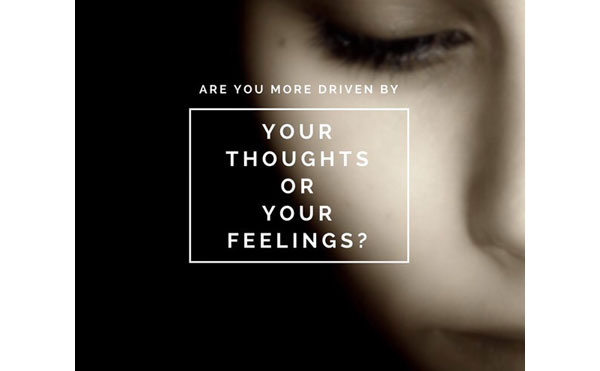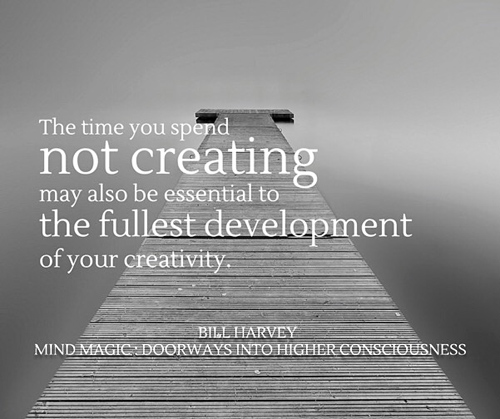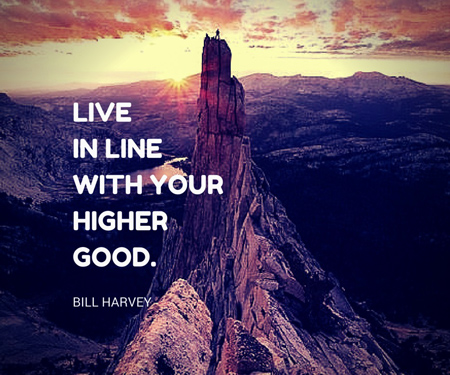Welcome to this week’s Bill Harvey Blog – November 22, 2024
Created February 9, 2017
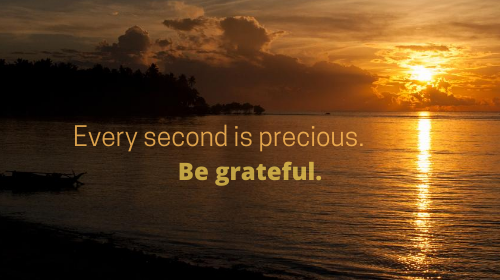
One rainy day I was driving a little too fast plus the cruise control was on. I got onto I-84 East and as I reached the highway itself I must have hit an oily patch for the next thing I knew I was going backwards, staring straight at Eastbound traffic bearing down on me at high speed — a truck passing a car, both coming right at me with many cars and trucks behind them.
Reflexively I righted the car and pulled off on the grassy median just as the honking truck and cars rushed past, missing me. A car pulled off and drove up alongside to see if I was alright. He said he was a Navy fighter pilot and complimented me on my reflexes, then drove off while I sat for a minute breathing deeply.
I bet you know what I was feeling because we have all felt it at one time or another — grateful for being alive. Life was suddenly so sweet. Every second was precious. The average workday that lay ahead was now an exciting prospect filled with interesting possibilities. The rain hitting the windshield was beautiful and I could see rainbows in each drop. The air tasted delicious.
Authentic gratitude is a very healthy emotion that I strongly suspect increases immune response and is conducive to Flow state. As I grow older and hopefully wiser I find myself more often being grateful simply for this life, for life itself and especially for the interesting and fun life I have had so far. But any life is better than the alternative of never having existed. Even a life of pain is more interesting than eternal unconsciousness, never having a sense of self, never having even one experience.
As long as one is alive, there is the chance to fix or accept anything
disturbing. That’s what creativity is for. Troubles can be overcome
in a flash of inspiration. Life is filled with endless possibilities.
Over time I’ve noted that when I am feeling the most gratitude, my luck runs high. Could it be that being truly grateful results in receiving even more to be grateful for?
By luck I mean opportunities for feeling love, deeply personal good things happening involving other people. I doubt that Vegas would play along with an experiment where variations in gratitude attitude could be related to winning money. However, recently I was playing games of chance with my granddaughter who was trouncing me game after game, getting fabulous hands while mine were terrible, yet all through it I was feeling very grateful for the time together. As far as I can tell, luck and gratitude are not linked in the sphere of winning at games of chance, but I continue to observe that they are linked in winning at the game of life.
When you’re on a beach chair gazing at the ocean, or at a lake, or sitting by a stream, or at any quiet moment, it’s easy to get in touch with the gratitude you have within you.
Gratitude is always there, like a carrier wave on which
there are overlays of more temporary modulations of feeling
in reaction to events.
Maybe if you’re lucky there is a place on your property or near your apartment where you can sit in nature or see a body of water. If not, you can still experience peace and wonderment inside yourself by meditation. If you’re not an experienced meditator here’s what I recommend.
For a new meditator sitting on the floor or even in a chair can be non-conducive to parking and losing track of your body. One trick to get your body to become “invisible” is to lay down on the floor, face down, with your hands folded on the floor in front of your face to form a comfortable cradle for your face. Make sure your body is stretched out as far as it will comfortably go. Close your eyes, breathe deeply, relax, and stay attentive to what you see and hear in your mind’s eye/ear. It’s a position in which you can stay as long as you want. If thinking is going on, just watch it as an observer. Don’t try to achieve anything.
Refocusing our awareness on basic gratitude for living gives us
immense power to rise above any negative emotion — making it
possible to always feel gratitude no matter what is happening,
especially when we are angry or sad.
Finding that switch inside that you can use at any moment will give you great strength. Use it well and enjoy yourself. Joy is the most likely reason The One Consciousness is doing this dance of life and expressing itself as you and me.
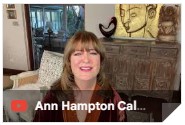
Ann Hampton Callaway sings “Grateful,”
a song of giving thanks by John Bucchino
When you’re grateful for all you have, then Thanksgiving is eternal.
Happy Thanksgiving.
Best to all,
![]()
Image by Xander John Dacyon

